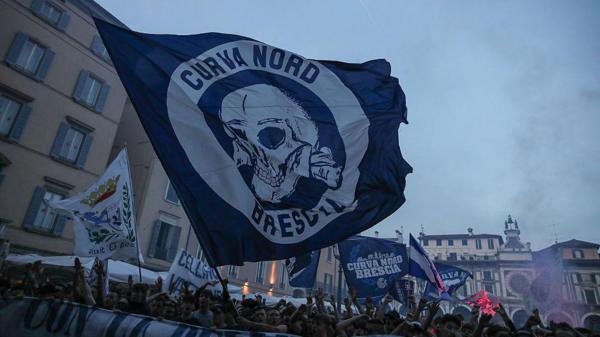Brescia's Stunning Fall: From Baggio & Guardiola to Oblivion




The world of Italian football experienced a significant shakeup recently as Brescia, a club with a storied history and a former Serie A mainstay, faced the harsh reality of having their professional licence revoked. This decision thrust the club into uncertainty, leaving fans and former players wondering about the future of an institution that once graced the top tiers of Italian football.
Brescia, established in 1911, has been more than just a football club; it's a community symbol. Located in Lombardy, the club has seen several ups and downs throughout its history. Despite not being as decorated as giants like Juventus or AC Milan, Brescia carved out a niche in Italian football history, noted for nurturing remarkable talents including the likes of Roberto Baggio and hosting world-class players such as Pep Guardiola towards the tail end of their careers.
Roberto Baggio, one of Italy's legendary playmakers, spent some of his most memorable years at Brescia. After stints with major clubs like Juventus and AC Milan, Baggio joined Brescia in 2000 and reinvigorated his career, enchanting fans with his vision and skill. Similarly, Pep Guardiola, before embarking on a stellar managerial career, also graced Brescia's midfield in 2001, adding a touch of international glamour to the team.
However, the glory days have faded, and financial instability has marred the club's recent history. The revocation of Brescia's professional licence by the FIGC (Italian Football Federation) comes as the culmination of long-standing economic difficulties, exacerbated by poor performances on the pitch. In the 2019/2020 season, the team was relegated from Serie A, and it has struggled to regain its footing ever since. This administrative relegation from professional status means that Brescia must now compete in non-professional, regional leagues, a far cry from the bright lights of Serie A stadiums.
The decision was made after Brescia failed to meet the necessary financial requirements to maintain its professional status, a situation that brings to light the precarious nature of football economics, especially post-pandemic. Clubs across the smaller European leagues have been severely impacted, with reduced revenues from ticket sales, broadcasting rights, and sponsorships.
Amidst the despair, there remains a glimmer of hope for a phoenix-like rebirth. Football clubs often reflect the resilience of their communities, and Brescia's rich legacy provides a foundation on which to rebuild. In similar cases, fan-led initiatives or new ownership structures have successfully revitalized clubs facing financial dire straits. For instance, Parma, another historic Italian club, managed a swift rise through the lower divisions after being relegated to Serie D due to bankruptcy in 2015.
For Brescia, the prospect of reconstruction must begin with solid leadership, both in the boardroom and on the pitch. The passionate fan base can be a pivotal force in rallying around the club during these tough times. Moreover, focusing on developing local talent and investing wisely in player development could help in crafting a sustainable model for success in the future.
There's also the broader narrative of ensuring such historic clubs maintain their place in professional football. Their struggles highlight the need for reforms in football management and financial fair play, ensuring clubs do not exceed their economic capabilities and risk collapse. It's an ongoing debate in the world of football governance, emphasizing the need for a balance between commercial interests and the sport's traditional values.
As Brescia contemplates its next steps, the journey ahead is undoubtedly daunting but not impossible. With a committed approach and community support, there's hope that Brescia might once again rise to professional status and reclaim its place in the annals of Italian football. Fans, historians, and neutrals alike will watch keenly, hoping that the club can turn a new page and forge a future as rich as its past.